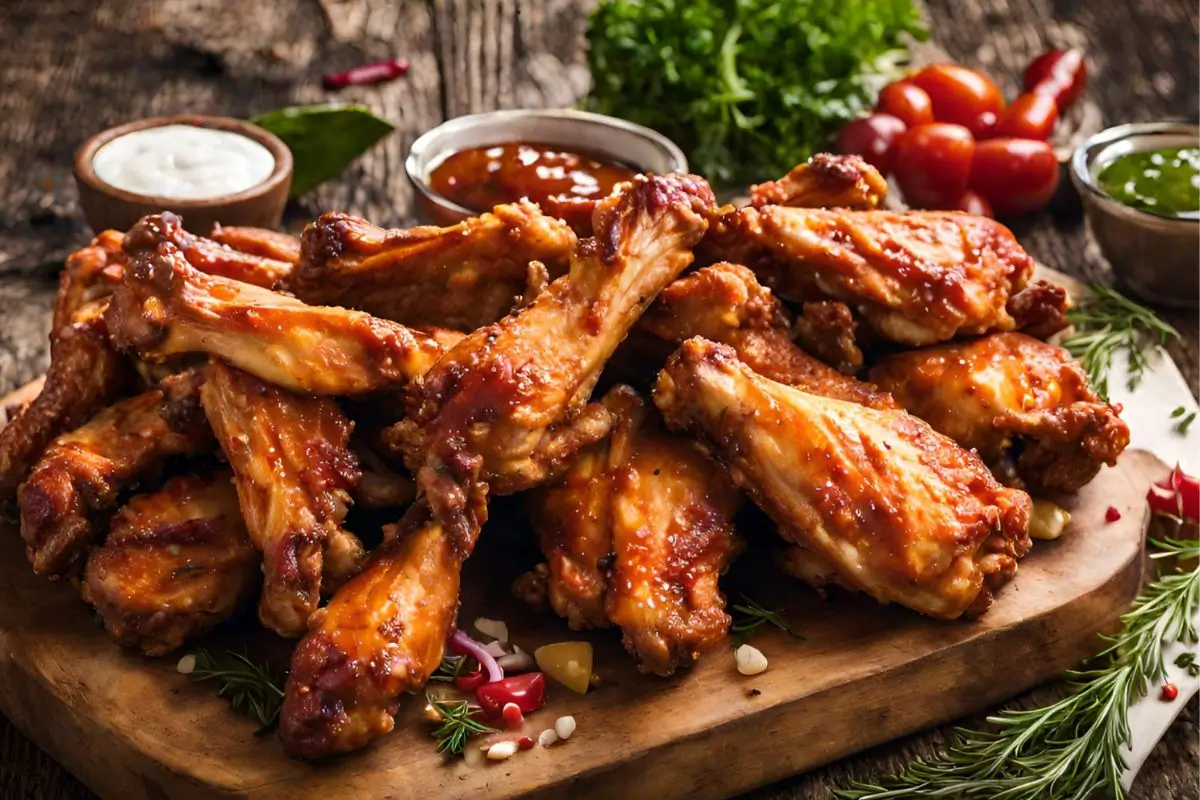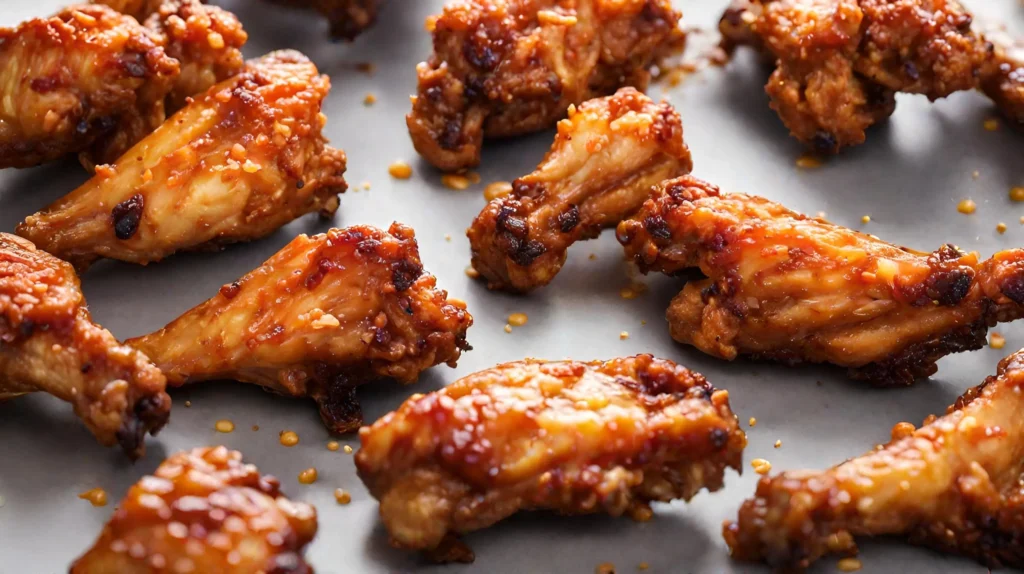Understanding the Carnivore Diet
The Basics of the Carnivore Diet: Can Chicken Wings Be Included?
Exploring the world of specialized diets, a question often arises: Can you eat chicken wings on the Carnivore Diet? This diet, known for its strict focus on animal-based foods, intrigues many with its simplicity and potential health benefits. In this article, we delve into whether chicken wings fit into this meat-centric dietary approach, examining their nutritional value, preparation methods, and overall role in the Carnivore Diet.
Health Benefits and Concerns of Eating Chicken Wings on a Meat-Only Diet
The diet has its fans and critics. Supporters report weight loss, more energy, and better digestion. But, there are concerns too. Critics worry about nutrient deficiencies and heart health due to high saturated fat intake. Despite the debates, its followers find the benefits hard to ignore.
Integrating Chicken Wings into Your Carnivore Diet Plan
Chicken wings, often a favorite at sports bars and weekend gatherings, can also be a delightful addition to the Carnivore Diet. Let’s delve into their nutritional value, how to prepare them, and the most effective cooking techniques.
Nutritional Profile of Chicken Wings in a Carnivore Diet Context
Firstly, chicken wings are a fantastic source of protein, essential for muscle maintenance and growth. Additionally, they are rich in fats, a crucial energy source in the Carnivore Diet. These wings are packed with vitamins like B6 and B12, supporting brain health and metabolism. Moreover, they provide minerals such as zinc and phosphorus. However, it’s vital to remember that they’re high in cholesterol and saturated fats, so moderation is key.
Preparing Chicken Wings for a Strictly Carnivorous Regimen
When it comes to preparation, simplicity is best. Opt for high-quality, organic wings if possible. Since the Carnivore Diet excludes plant-based seasonings, focus on animal-based flavorings. You might use butter, ghee, or other animal fats for marinating. For those who enjoy a bit of spice, consider animal-based hot sauces, ensuring they’re free of added sugars or vegetables.
For more carnivore-friendly chicken recipes, check out our collection here.
Best Cooking Methods
Furthermore, the cooking method is crucial for perfect chicken wings. Baking and grilling are the preferred methods, as they maintain the natural flavors and provide a desirable crispy texture. It’s important to avoid deep-frying, as it often involves non-animal-based oils, which are not suitable for this diet. If grilling, watch the wings closely to prevent over-charring. For baking, a high temperature is recommended to achieve that perfectly crispy skin.
In summary, chicken wings can be a delicious and nutritious component of the Carnivore Diet. They offer vital nutrients while satisfying your cravings. Always choose high-quality wings and stick to animal-based seasonings and cooking methods. Enjoy your wings, knowing they’re a perfect fit for your dietary needs!
Chicken Wings on the Carnivore Diet: Key Considerations
While chicken wings are a delicious addition to the Carnivore Diet, there are several factors to consider. From selecting the right wings to understanding allergens and managing portions, let’s explore these crucial aspects.
Selecting the Right Chicken Wings for Your Carnivore Diet
First and foremost, the quality of the chicken wings is paramount. Ideally, opt for organic or pasture-raised chicken. These options are not only healthier but also more ethical. They tend to have a better nutritional profile, including a higher content of omega-3 fatty acids. Additionally, consider the source of the chicken. Locally sourced wings are often fresher and support sustainable farming practices.
Potential Allergens and Sensitivities
Next, be mindful of allergens and sensitivities. While chicken wings themselves are unlikely to cause allergic reactions, the cooking process and added ingredients might. For instance, some people are sensitive to certain animal fats used in cooking. Always check for any added ingredients, especially if the wings are pre-marinated or pre-cooked, to avoid any unwanted reactions.
Portion Control and Frequency of Eating Chicken Wings on the Carnivore Diet
Lastly, portion control and frequency are crucial, even in a diet as unrestricted as the Carnivore Diet. Chicken wings are high in calories and fats, which can lead to weight gain if consumed in excess. It’s advisable to enjoy them in moderation as part of a balanced carnivorous diet. Pay attention to your body’s signals and adjust portions and frequency accordingly.
What Else Can You Eat on the Carnivore Diet?
The Carnivore Diet isn’t just about chicken wings; it offers a variety of other foods to keep your meals exciting and nutritionally balanced. Let’s explore other meat options, the importance of organ meats, and the role of fats in this diet.
Other Meat Options Compatible with the Carnivore Diet
Besides chicken wings, the Carnivore Diet welcomes a plethora of meat choices. Beef, pork, lamb, and fish are all excellent sources of protein and essential nutrients. Each type of meat brings its unique flavor and nutritional profile. For instance, beef is rich in iron and B vitamins, while fish provides omega-3 fatty acids, crucial for heart and brain health. Experimenting with different meats can prevent dietary boredom and ensure a broader intake of nutrients.
Incorporating Organ Meats
Organ meats, often overlooked, are nutritional powerhouses in the Carnivore Diet. Liver, for example, is packed with vitamins A, D, E, and K, and is an excellent source of iron and protein. Kidneys and heart are also nutrient-dense options. These organ meats can provide nutrients that might be less abundant in muscle meats, making them an important component of a well-rounded carnivorous diet.
The Role of Fats
Fats play a vital role in the Carnivore Diet, providing energy and aiding in the absorption of fat-soluble vitamins. Animal fats, such as those found in marbled cuts of meat, butter, and ghee, are preferred. These fats are not only delicious but also help you feel satiated. It’s important to balance lean and fatty cuts of meat to maintain a healthy intake of fats.
Nutritional Implications of Eating Chicken Wings
Chicken wings, a popular choice in the Carnivore Diet, have specific nutritional implications. Understanding their macronutrient breakdown, vitamin and mineral content, and how to balance them in your diet is key to enjoying their benefits healthily.
Macronutrient Analysis of Chicken Wings for Carnivore Dieters
Chicken wings are primarily composed of protein and fat. The protein in chicken wings is complete, meaning it contains all nine essential amino acids necessary for bodily functions. The fat content, predominantly saturated and monounsaturated fats, provides a rich energy source. However, it’s crucial to monitor fat intake, as excessive consumption can lead to imbalances and health issues.
Vitamins and Minerals in Chicken Wings: A Carnivore’s Perspective
Chicken wings are more than just protein and fat; they also offer a range of vitamins and minerals. They are a good source of B vitamins, particularly niacin (B3), which plays a vital role in energy metabolism and maintaining healthy skin. Wings also contain minerals like selenium, important for immune function, and phosphorus, essential for bone health. However, they lack certain nutrients found in plant foods, highlighting the need for a diverse meat selection in the diet.
Balancing Your Carnivore Diet with Chicken Wings
While chicken wings can be a tasty part of the Carnivore Diet, balance is crucial. To avoid nutritional deficiencies, it’s important to vary your meat choices and include different types of animal products. Incorporating organ meats, as mentioned earlier, can help cover nutritional gaps. Additionally, paying attention to the quality of the meat and its preparation method can enhance the nutritional value of your meals.
Exploring the Environmental and Ethical Aspects
Sustainable Practices in Meat Consumption
- Discuss the importance of choosing chicken wings and other meats from sustainable sources.
- Highlight the environmental impact of different farming practices.
- Offer tips on how to source meat responsibly, emphasizing local and organic options.
Subheading: Ethical Considerations in the Carnivore Diet
- Explore the ethical dimensions of consuming animal products, particularly in a diet focused solely on meat.
- Address concerns about animal welfare and how consumers can make ethical choices.
- Discuss the role of certifications and labels in identifying ethically sourced meats.
Frequently Asked Questions
The Carnivore Diet, especially when it involves popular foods like chicken wings, often raises questions. Here, we address some common concerns and queries, along with expert opinions and advice to provide clarity.
Common Concerns and Queries
Q: Can I eat chicken wings every day on the Carnivore Diet?
A: While chicken wings are acceptable on the Carnivore Diet, eating them daily isn’t recommended due to their high saturated fat content. Variety is key for nutritional balance.
Q: Are there any risks associated with eating too many chicken wings?
A: Excessive consumption of chicken wings, particularly those high in saturated fats, can increase the risk of cholesterol-related health issues. Moderation and a balanced approach are essential.
Q: Can chicken wings be the only source of protein in my diet?
A: Relying solely on chicken wings for protein can lead to nutritional deficiencies. It’s important to include a variety of protein sources, such as beef, fish, and organ meats, for a well-rounded diet.
Expert Opinions and Advice
Q: What do nutritionists say about the Carnivore Diet and chicken wings?
A: Nutritionists emphasize the importance of variety in the Carnivore Diet. While chicken wings can be part of this diet, they should be balanced with other nutrient-rich animal foods.
Q: How can I ensure I’m getting enough nutrients while eating chicken wings on this diet?
A: To ensure adequate nutrient intake, include a variety of meats and organ meats in your diet. Pay attention to the quality of the chicken wings and opt for organic or pasture-raised options when possible.
Q: Are there any long-term health concerns with the Carnivore Diet?
A: Some experts express concerns about potential long-term effects, such as nutrient deficiencies and heart health risks. It’s advisable to consult with a healthcare provider before starting any restrictive diet.
Final Thoughts on Chicken Wings in the Carnivore Diet
As we wrap up our exploration of chicken wings within the Carnivore Diet, it’s clear that they can be a delicious and nutritious part of this eating plan. However, as with any diet, balance and moderation are key.
Summary of Key Points
Chicken wings offer a good source of protein and fats, essential in the Carnivore Diet. Their nutritional profile includes important vitamins and minerals, making them a beneficial choice. However, it’s crucial to consider their high saturated fat and cholesterol content. Variety in meat selection, including organ meats, and attention to meat quality are important for a balanced diet. Cooking methods also play a significant role in maintaining the nutritional integrity of the wings.
Personalized Diet Recommendations
For those considering or currently following the Carnivore Diet, here are some personalized recommendations:
- Diversify Your Protein Sources: Don’t rely solely on chicken wings. Include a variety of meats, especially organ meats, to ensure a broad spectrum of nutrients.
- Quality Matters: Choose high-quality, preferably organic or pasture-raised chicken wings to maximize nutritional benefits.
- Monitor Portions: Be mindful of portion sizes and frequency of consumption to maintain a healthy balance of fats and proteins.
- Consult Professionals: Consider consulting with a nutritionist or healthcare provider to tailor the diet to your individual health needs and goals.
Learn more about the benefits and challenges of including chicken in your Carnivore Diet : Carnivore Diet with Chicken








